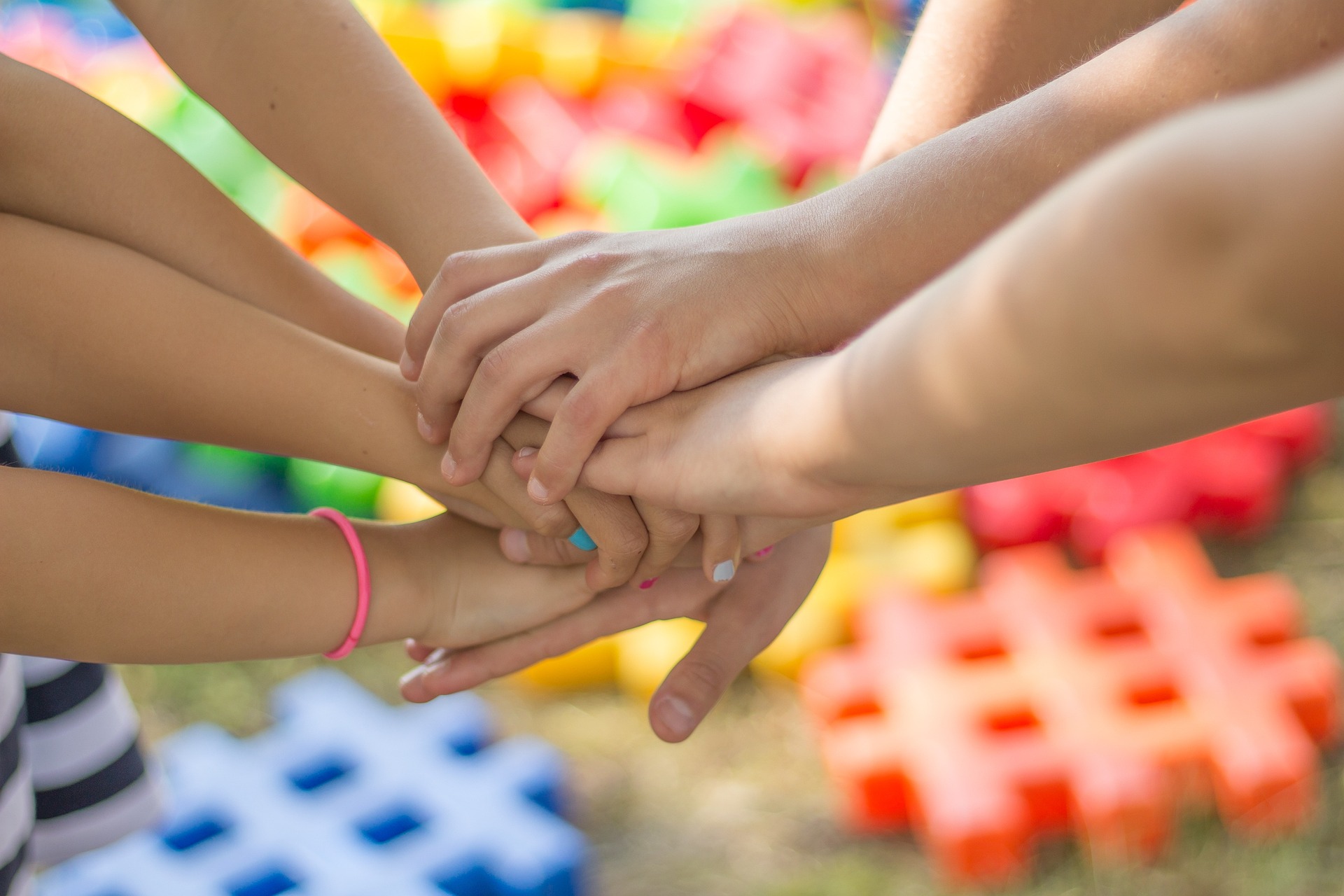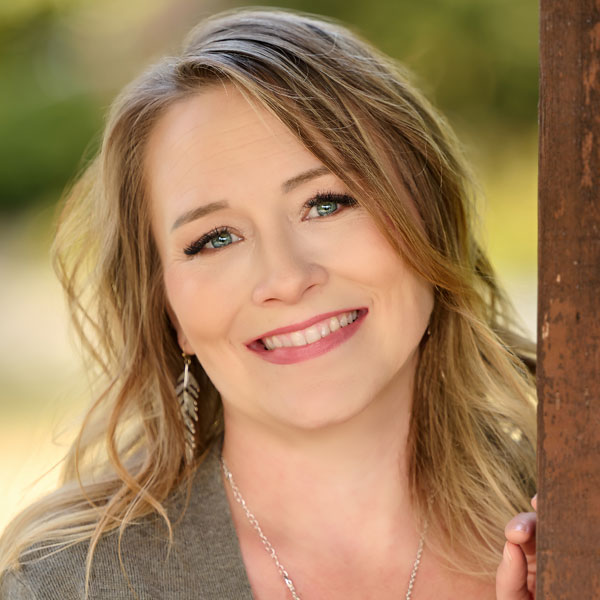Sibling support for children with autism or other special needs is essential yet often overlooked. The phrase “it takes a village to raise a child” is true for all children, but especially for individuals with autism or other special needs. For instance, when a child is diagnosed with autism spectrum disorder (ASD), it not only impacts their lives, but also their parents and siblings.
 Within the United States, 1 in 44 children are diagnosed with ASD each year (CDC, 2022). Moreover, “about 1 in 6 (17%) children aged 3–17 years were diagnosed with a developmental disability, as reported by parents, during a study period of 2009-2017. These included autism, attention-deficit/hyperactivity disorder, blindness, and cerebral palsy, among others” (CDC, 2022).
Within the United States, 1 in 44 children are diagnosed with ASD each year (CDC, 2022). Moreover, “about 1 in 6 (17%) children aged 3–17 years were diagnosed with a developmental disability, as reported by parents, during a study period of 2009-2017. These included autism, attention-deficit/hyperactivity disorder, blindness, and cerebral palsy, among others” (CDC, 2022).
Data shows that many families in our country are navigating life with children with developmental diagnoses. While there are many resources and supports for caregivers, it is crucial to also care for the siblings.
Why it’s important to consider the siblings.
Siblings are typically a part of your life longer than the parents. Their relationship with their sibling with a disability is one of the most enduring. Often these siblings take on a sort of parenting and caregiver role in adulthood as their own parents age.
As children, siblings may experience a range of complex emotions in relation to their brother or sister with a disability. One sister articulated, “The impact of having a sibling with a disability changes over the lifespan. Younger siblings tend to worry about how their brother or sister will impact the ability to fit in with peers.
There can be a mixture of emotions that range from jealousy (“why does he get all of the attention?”) to protection. At a very young age, siblings start to worry about who will care for their disabled sister or brother if mom or dad aren’t around” (Braaten, 2022).
Similarly, siblings may feel left out or overlooked in comparison to the level of care and attention directed toward their brother or sister with a disability. They may experience resentment if they feel like there are different standards for behavior or chores between the siblings (Brookes, 2017). Numerous adaptive treatments, therapies, and doctor’s appointments may fill up the family schedule and take time away from the sibling.
 Siblings may also experience bullying either by seeing their autistic or special needs sibling mocked and teased, or by experiencing it themselves. Like their parents, siblings may also experience mental health effects such as anxiety and depression. Far too often young siblings take on caregiving roles themselves in a desire to support and protect their brother or sister with a disability. This is also called parentification.
Siblings may also experience bullying either by seeing their autistic or special needs sibling mocked and teased, or by experiencing it themselves. Like their parents, siblings may also experience mental health effects such as anxiety and depression. Far too often young siblings take on caregiving roles themselves in a desire to support and protect their brother or sister with a disability. This is also called parentification.
However, not all consequences of having a sibling with a disability like ASD are negative. These siblings often have increased empathy, toleration of differences, celebration of diversity, and resilience. Sibling support is foundational for their own holistic health, as well as the health and support for their sibling. Research has shown that there are many ways to provide sibling support.
Types of sibling support.
Supporting a child who has a sibling with a disability can take on many facets. There is no one size fits all when it comes to holistic sibling support. You will need to try different support systems to find what works best for your family.
While there is much room for growth in community-wide supports, there are organizations like The Sibling Support Project, established in 1980. This nation-wide program network includes supports like “sib shops” which are events for school-aged children to meet others they can relate to, have fun, and learn more about disabilities and the services their sibling may receive (The SIbling Support Project, 2022).
In addition, many providers are open to including siblings into play-based therapy time so that the siblings can learn together. Other national resources for sibling support can be found in a list at the end of this article.
Sibling support: understanding and responsibility.
With the frequency of siblings experiencing parentification with symptoms such as feeling as if they have to be responsible for their sibling, perfect or overachieve, and become hyper-independent, (Goodman, 2020), it is imperative to support siblings in age-appropriate understanding and responsibility.
 Give age-appropriate explanations. This includes discussions on topics such as the name of the disability and how it impacts their sibling, the types of therapies their sibling goes to and why, and school supports they may have.
Give age-appropriate explanations. This includes discussions on topics such as the name of the disability and how it impacts their sibling, the types of therapies their sibling goes to and why, and school supports they may have.
Involve siblings in the treatment and therapies. Again, this needs to be an invitation to play and to be included, not to take on responsibility or force participation. Siblings often want to know how they can connect and play, and they can offer further insight into how their sister or brother interacts at home or at school. This is also in line with many treatment plans and goals that are centered on generalization of the skill to real-life.
Be mindful of over-responsibility. This may take many forms such as hypervigilance and over-performing. It is related to the tendency for siblings to develop perfectionism or feeling like they must be “okay” to help relieve the stress of the needs of their brother or sister with a disability. If you notice this, it is important to affirm that they are a child, they do not have to be in-charge or take care of their sibling.
Discuss the future. Since siblings are typically the longest relationship in life, it crucial to support siblings in their hopes, dreams, and fears about the future. You can have talks about adulthood and how they will be in relationship or possibly be the caregiver for their sibling with ASD or another disability.
Studies have shown that siblings often begin worrying about the future as young as age 12 (Braaten, 2022). Tell them you are making plans for finances or long-term care. This should be age-appropriate and a time for the sibling to ask questions.
Sibling support: social and emotional.
Growing up with a sibling with a disability, especially when they may have behavioral and/or emotional outbursts that can be unsafe or frightening, impacts the mental and emotional health of the child. In addition, the needs and milestones of the brother or sister may seem to overshadow the needs and accomplishments of the siblings. It is essential to consider the emotional and social health and safety of the siblings.
 Celebrate everyone. Some ways to support siblings include having reliable and trained care/babysitting so that parents can be present at things such as sports games, graduations, or other awards ceremonies. This also looks like talking about and sharing the accomplishments of the siblings in daily life.
Celebrate everyone. Some ways to support siblings include having reliable and trained care/babysitting so that parents can be present at things such as sports games, graduations, or other awards ceremonies. This also looks like talking about and sharing the accomplishments of the siblings in daily life.
Prioritize one-on-one time. Even if it is just a few minutes a day, making time to focus solely on the sibling will help. Engage in conversation or activities they enjoy. This will help them feel seen and included even when the scheduled activities are geared to supporting their sibling. Other examples include planning day trips or special events that the sibling can anticipate.
Acknowledge their fears and need for safety. This looks like being proactive around conversations and plans for safety when their sibling engages in challenging behaviors. Research demonstrates that siblings have complex emotions such as anxiety and confusion around their sibling’s behaviors or difficulty with communication and play.
Many behavioral supports such as applied behavior analysis intervention will include positive behavior support plans that have detailed strategies for addressing challenging behaviors and keeping everyone safe. When it comes to addressing their fears or anxiety, mental health supports such as individual or family counseling can also help.
Hold space for and model coping with complex emotions. Similarly, emotional regulation skill development is important for holistic health. Accepting these waves of emotions and learning how to process and cope are imperative. Some examples include:
- Feelings charts: have common language around identifying emotions and appropriate behaviors.
- Breathwork: regulation practices such as deep breathing are helpful for all children to develop coping and calming skills.
It really does take a village to raise a child. Taking time to support each family member is essential for the long-term health, and sibling support is especially important when there is a child with a disability. A qualified Christian counselor can be an important part of your village in raising a healthy sibling of a child with autism or other special needs.
“Piggy-back Ride”, Courtesy of Pexels, Pixabay.com, CC0 License; “Reading Together”, Courtesy of Ben White, Unsplash.com, CC0 License; “Sculpture”, Courtesy of photosforyou, Pixabay.com, CC0 License; “Team”, Courtesy of jarmoluk, Pixabay.com, CC0 License






